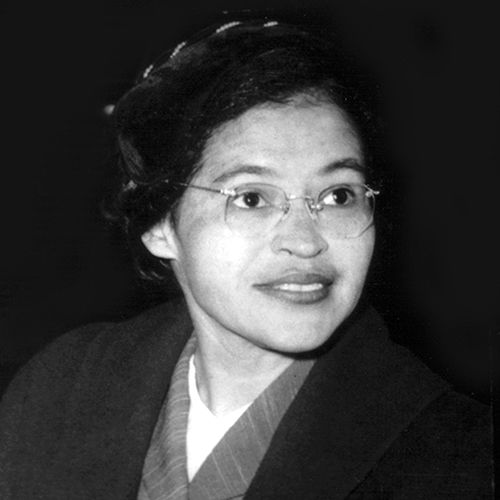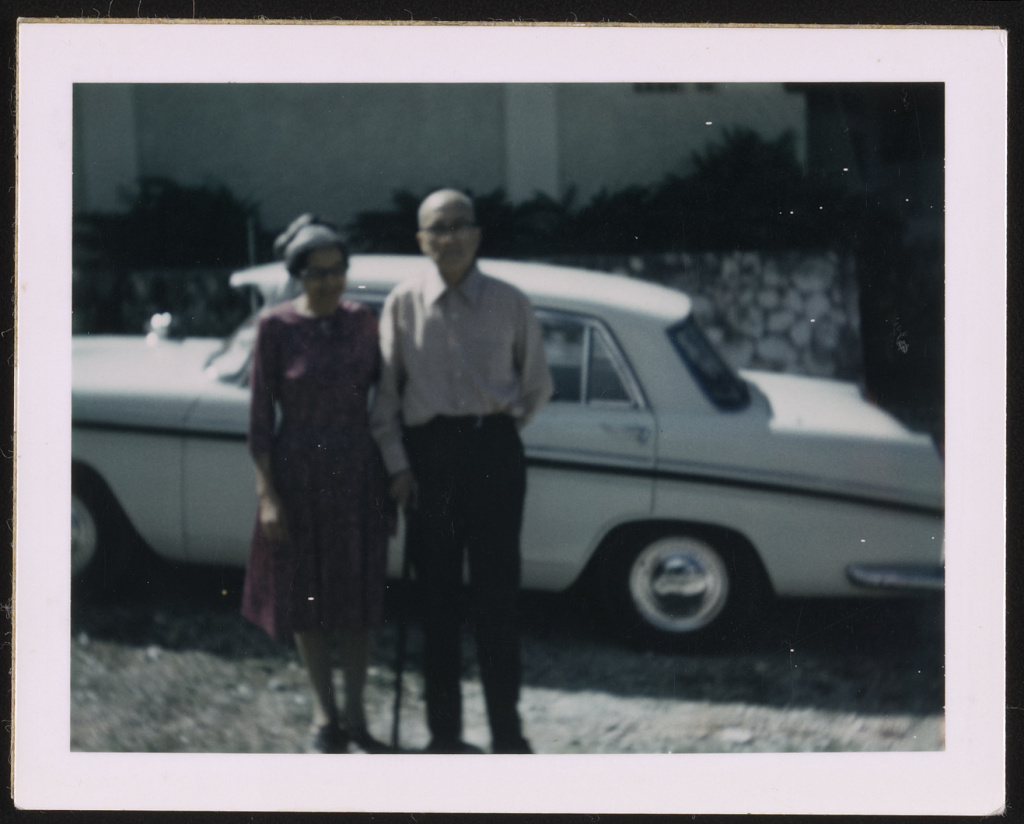Rosa Parks was a civil rights activist known for refusing to give up her bus seat in 1955. Her act sparked the Montgomery Bus Boycott.
Rosa Parks, often called the “mother of the civil rights movement,” played a crucial role in American history. Born in Tuskegee, Alabama, in 1913, she became a symbol of resistance against racial segregation. Her defiance on December 1, 1955, led to a city-wide boycott that lasted over a year and marked a pivotal moment in the fight for racial equality.
Parks worked closely with leaders like Martin Luther King Jr. , helping to galvanize public support and bring about significant changes. Her courage and commitment continue to inspire generations in the ongoing struggle for justice and equality.

Credit: www.biography.com
Early Life
Rosa Parks, known as the “Mother of the Civil Rights Movement,” had a humble beginning. Her early life shaped her into the brave woman who stood up for justice.
Family Background
Rosa Parks was born on February 4, 1913, in Tuskegee, Alabama. Her parents were James McCauley, a carpenter, and Leona McCauley, a teacher. Rosa had a younger brother named Sylvester. The family lived on a small farm in Pine Level, Alabama. They grew their own food and raised animals. Rosa’s grandparents were former slaves and shared stories of their past.
Education
Rosa Parks attended the Industrial School for Girls in Montgomery. This school was run by the Alabama State Teachers College for Negroes. Rosa loved reading and learning. She later went to Alabama State Teachers College for Negroes. Rosa had to leave school to care for her sick grandmother. She returned to finish high school after marrying Raymond Parks in 1932.

Credit: en.wikipedia.org
Montgomery Bus Boycott
The Montgomery Bus Boycott was a major event in the Civil Rights Movement. It began with Rosa Parks refusing to give up her seat to a white man. Her act of defiance sparked a year-long protest.
The Arrest
On December 1, 1955, Rosa Parks was tired after a long day. She boarded a bus in Montgomery, Alabama. She sat in the “colored section” of the bus. The bus filled up, and the driver demanded she give up her seat. Rosa refused and was arrested.
This arrest was not the first. Parks had a history of activism. Her arrest was the final straw for many in the black community.
Community Response
The black community in Montgomery was outraged by Rosa’s arrest. They decided to boycott the buses. This was called the Montgomery Bus Boycott.
The boycott began on December 5, 1955. People walked or carpooled instead of taking the bus. The boycott lasted for 381 days. It ended when the Supreme Court ruled bus segregation unconstitutional.
- The Montgomery Improvement Association (MIA) was formed to lead the boycott.
- Dr. Martin Luther King Jr. became the leader of the MIA.
- The boycott showed the power of peaceful protest.
The Montgomery Bus Boycott was a landmark event. It showed that change was possible through unity and peaceful protest.
Role In Naacp
Rosa Parks played a crucial role in the NAACP. Her work helped fight racial injustice. She became a symbol of courage and strength.
Secretary Duties
Rosa Parks began as a secretary for the NAACP. She handled many important tasks. These tasks included:
- Documenting meetings
- Organizing events
- Maintaining records
Her efforts ensured smooth operations. Her attention to detail was remarkable.
Collaborations
Rosa Parks worked with many key figures. She collaborated with leaders to plan strategies. Some of her notable collaborations were:
| Figure | Contribution |
|---|---|
| Martin Luther King Jr. | Organized protests and marches |
| E.D. Nixon | Helped fight segregation laws |
These collaborations made a huge impact. They led to significant changes.
Impact On Legislation
Rosa Parks’ bravery helped change laws. Her actions led to important legal changes. These changes aimed to make life fairer for everyone.
Civil Rights Act
The Civil Rights Act was passed in 1964. This law ended segregation in public places. It also banned employment discrimination. Rosa Parks’ actions inspired this law. Her courage showed the need for change.
Key features of the Civil Rights Act:
- Ended segregation in public places
- Banned employment discrimination
- Promoted equality
Voting Rights Act
The Voting Rights Act was passed in 1965. This law aimed to remove barriers to voting. Many African Americans could now vote easily. Rosa Parks’ activism highlighted the unfair voting rules.
Key features of the Voting Rights Act:
- Removed barriers to voting
- Ensured fair voting practices
- Protected voting rights
Challenges Faced
Rosa Parks, a symbol of courage and resistance, faced many challenges. Her act of defiance on a Montgomery bus brought severe consequences. These obstacles shaped her journey and legacy.
Threats And Harassment
After her bold stance, Rosa Parks received numerous threats. Angry individuals sent hate mail and made threatening phone calls. This harassment aimed to break her spirit but she remained steadfast.
The Ku Klux Klan targeted her and her family. They faced constant fear of violence. Despite these threats, Rosa continued her fight for justice.
Financial Struggles
Rosa Parks’ activism came at a financial cost. She lost her job as a seamstress. Her husband, Raymond Parks, also faced job difficulties due to their activism. This put a strain on their finances.
They struggled to make ends meet. Friends and supporters often helped them with basic needs. They lived frugally, focusing on their mission rather than comfort.
| Challenge | Impact |
|---|---|
| Job Loss | Financial instability |
| Constant Threats | Fear and stress |
| Harassment | Emotional toll |
Rosa Parks’ resilience amidst these challenges is inspiring. Her story teaches the power of courage and dedication.
Legacy
Rosa Parks is a symbol of courage and strength. Her legacy continues to inspire millions. Her actions sparked a movement that changed history. Let’s explore her legacy in detail.
Awards And Honors
Rosa Parks received many awards and honors for her bravery. She was awarded the Presidential Medal of Freedom in 1996. This is the highest honor given to a civilian in the United States. In 1999, she also received the Congressional Gold Medal. This is one of the highest awards in the country.
Other notable awards include:
- Spingarn Medal from the NAACP in 1979
- Martin Luther King Jr. Award from the NAACP
- Peace Abbey Courage of Conscience Award in 1992
These awards recognize her significant contributions to civil rights.
Public Perception
Rosa Parks is viewed as a hero by many. She is often called the “Mother of the Civil Rights Movement”. Her act of defiance on a bus sparked change across the nation. People respect her for her bravery and determination.
Rosa Parks’ story is taught in schools around the world. Children learn about her courage and the impact of her actions. Many public places, like streets and schools, are named after her. This shows the lasting impact she has had on society.
Her legacy lives on through the Rosa and Raymond Parks Institute for Self Development. This organization continues her work in promoting civil rights and education.
| Award | Year |
|---|---|
| Presidential Medal of Freedom | 1996 |
| Congressional Gold Medal | 1999 |
| Spingarn Medal | 1979 |
| Peace Abbey Courage of Conscience Award | 1992 |
These honors solidify her place in history.
Influence On Future Activists
Rosa Parks is a hero. She refused to give up her seat. This act of bravery sparked the Civil Rights Movement. Her courage has inspired many future activists. They fight for justice and equality.
Inspiration To Leaders
Rosa Parks inspired many leaders. These leaders include Martin Luther King Jr. He led the Montgomery Bus Boycott. This event lasted 381 days. It changed history.
Another leader is John Lewis. He was a congressman. He fought for civil rights. He marched in Selma, Alabama. He credited Rosa Parks for his courage.
| Leader | Contribution |
|---|---|
| Martin Luther King Jr. | Led the Montgomery Bus Boycott |
| John Lewis | Marched in Selma, Alabama |
Continuing The Fight
Today’s activists follow Rosa Parks’ example. They fight against racial injustice. They use peaceful protests. They organize marches. They raise awareness through social media.
- Peaceful Protests
- Organized Marches
- Social Media Campaigns
These modern activists include Black Lives Matter. They fight against police brutality. They demand equal rights. They honor Rosa Parks’ legacy.
Rosa Parks’ influence is strong. Her bravery continues to inspire. Future generations will remember her. They will continue her fight for justice.
Commemorations
Rosa Parks is a symbol of courage and equality. Many have honored her legacy through various commemorations. These tributes ensure her story continues to inspire future generations.
Memorials And Statues
Many cities have erected statues to honor Rosa Parks. These statues stand as a reminder of her bravery. In Montgomery, Alabama, there is a prominent statue of Parks. It shows her seated, reflecting the bus incident that sparked change.
Washington D.C. also hosts a statue of Rosa Parks. This statue is in the U.S. Capitol’s National Statuary Hall. It was unveiled in 2013 and is a significant tribute. Visitors to these memorials learn about her impact on civil rights.
Other cities with Parks’ memorials include:
- Detroit, Michigan
- Grand Rapids, Michigan
- Montgomery, Alabama
Rosa Parks Day
Rosa Parks Day celebrates her contributions to civil rights. This day is observed on two different dates. Some states celebrate it on February 4, her birthday. Others observe it on December 1, the day she was arrested.
On Rosa Parks Day, schools and organizations host events. These events include educational programs and community activities. People share stories of her life and achievements. They also discuss the importance of standing up against injustice.
The following states officially recognize Rosa Parks Day:
| State | Date |
|---|---|
| California | February 4 |
| Missouri | February 4 |
| Ohio | December 1 |
| Oregon | February 4 |
| Texas | December 1 |
Rosa Parks Day offers an opportunity for reflection. It encourages people to continue the fight for equality. Celebrating her legacy reminds us of the power of peaceful protest.
Frequently Asked Questions
When Was Rosa Parks Locked Up?
Rosa Parks was locked up on December 1, 1955. She was arrested for refusing to give up her bus seat.
Who Was Rosa Parks?
Rosa Parks was a civil rights activist known for her pivotal role in the Montgomery Bus Boycott.
Why Is Rosa Parks Famous?
Rosa Parks is famous for refusing to give up her bus seat, sparking the Montgomery Bus Boycott.
What Did Rosa Parks Do?
Rosa Parks refused to give up her bus seat to a white passenger, challenging segregation laws.
When Did Rosa Parks’ Bus Incident Happen?
Rosa Parks’ bus incident occurred on December 1, 1955, in Montgomery, Alabama.
How Did Rosa Parks Impact Civil Rights?
Rosa Parks’ act of defiance led to the Montgomery Bus Boycott, a significant event in the Civil Rights Movement.
Where Was Rosa Parks Born?
Rosa Parks was born in Tuskegee, Alabama, on February 4, 1913.
Did Rosa Parks Go To Jail?
Yes, Rosa Parks was arrested and jailed for her refusal to give up her bus seat.
Conclusion
Rosa Parks’ bravery sparked a crucial movement in civil rights history. Her refusal to give up her seat changed America. Parks’ legacy continues to inspire people worldwide to fight for equality and justice. Remembering her courage helps us strive for a fairer society.
Let’s honor her by championing equality every day.


